New ‘Superfood’ to Ensure Wild Birds get Enough Calcium
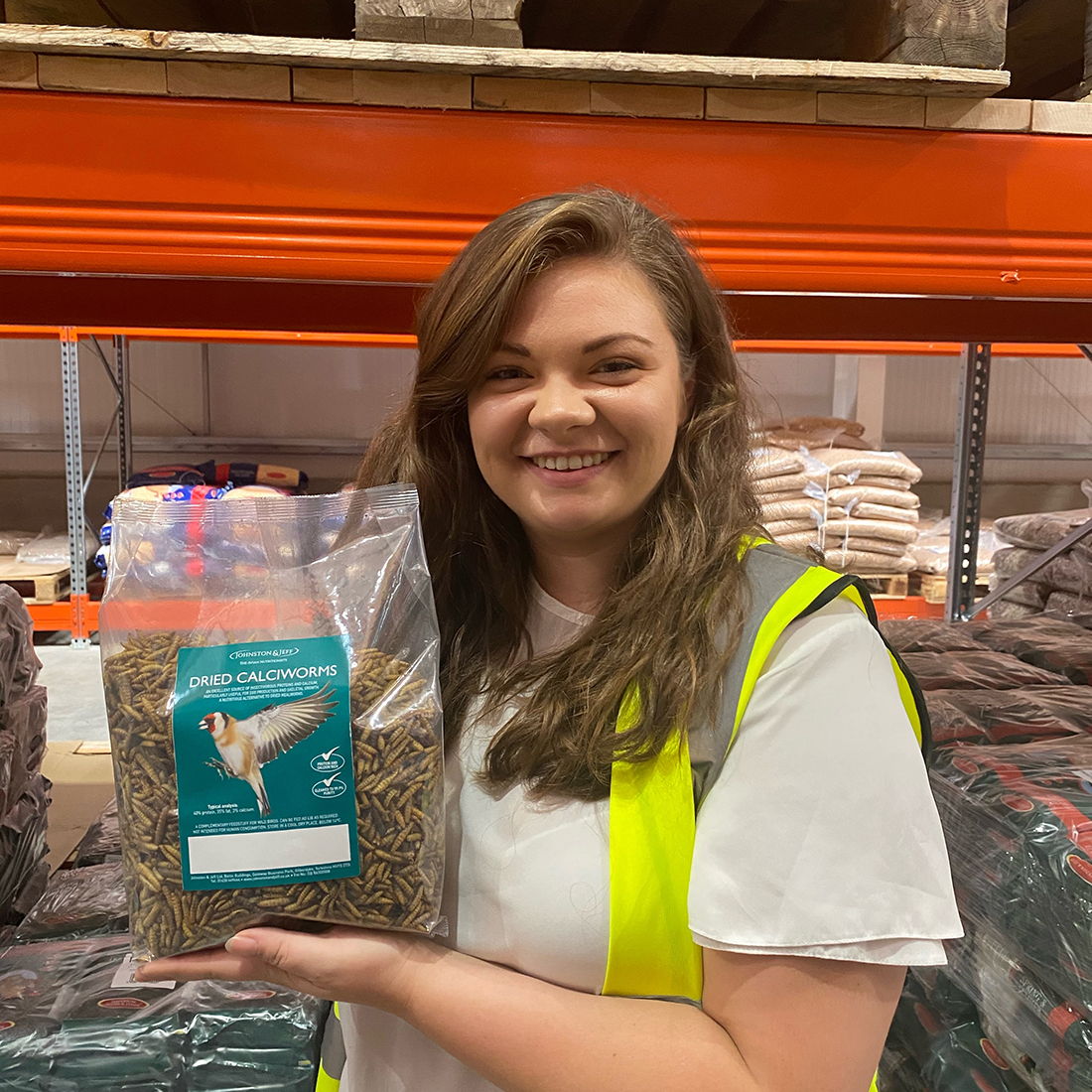
We are really excited to be launching a new superfood to ensure wild birds get sufficient calcium in their diet.
Dried Calciworms – the larvae of the Black Soldier Fly (Hermetia Illucens) – are a fantastic supplement to our range of premium quality wild bird feeds and typically contain around 50 times more calcium than other insects or worms.
Ensuring wild birds get enough dietary calcium is essential as the mineral provides a number of vital health benefits but is not always abundant in their natural foods.
Calcium is crucial for maintaining a strong skeletal system, for egg development and in some species even leads to increased egg production if fed in the run up to nesting time.
It is also essential for muscle contraction, nerve impulse transmission, and a host of other important metabolic systems, making it a highly important mineral to wild birds.
Maddy Johnston, Marketing and Media Manager at Johnston & Jeff, said another major benefit of calciworms is that they contain calcium in the right concentration to facilitate the absorption of phosphorus – another essential element.
Calcium, phosphorus and vitamin D – produced by exposure to sunlight – must all be in the right balance to be fully utilised by the body, and calciworms can help achieve this.
Maddy said: “Unlike other types of insects or worms, calciworms naturally contain the correct ratio of calcium to phosphorus, and combined with vitamin D, this creates the optimal conditions for mineral absorption, which makes them an incredible nutritious avian superfood.
“Fed regularly, calciworms make for strong bones, better reproductive success and shiny feathers. They’re a great alternative to dried mealworms and they enhance the diversity of insectivorous proteins on the market today.”
As well as having superior levels of calcium, calciworms also have high levels of protein and fat, making them highly nutritious and palatable.
They should be fed all year round – particularly in winter and spring, during nesting season – and are suitable for Robins, Blackbirds, Tits, Finches, Dunnocks, Woodpeckers, Sparrows, Nuthatches, Siskins, Thrushes, Wrens, Yellow Hammers, Stonechats, Buntings, Linnets, Starlings and Bramblings.
They’re also a firm favourite of hedgehogs!
Maddy added that calciworms can be fed in the same way as dried mealworms; from a mealworm feeder, on a bird table or by scattering them on the ground.
“You can also soak them for 20-30 minutes prior to putting them out,” she said.
“To add in extra moisture and hydration for your garden birds.
“This is a particular great way for feeding when there are fledglings about because it makes the calciworms softer, therefore reducing the risk of the chicks choking.”
Dried Calciworms are available in pack sizes of 100g, 500g and 1kg.
For more information or to place an order, contact your accounts manager or email mail@johnstonandjeff.co.uk.
Our Recent Posts Giving Advice and Guidance on Keeping and Caring For Birds
Ahoy the Mighty Macaws – the Pirate’s Favourite!
Reading Time: 15 minutes Mention the word parrot and the first thing many people think of is a Macaw. Sat abreast many a pirate’s shoulder in books, TV, films and cartoons, these colourful, long-tailed birds are big, beautiful, instantly recognisable as the archetypal parrot, and always happy to take a tasty treat from their owner.
Ground Nesting Birds
Ground Nesting Birds In an earlier article, we looked at nesting behaviour in wild birds and how you could use this knowledge to encourage birds to nest in your garden. In that article we talked about birds that nest in [...]
Incredible Journeys – Bird Migration Explained
Reading Time: 11 minutes While many species of bird make the UK their home all year round, some just visit for the summer or winter months and then head off to distance shores for the rest of the year. In this blog, we examine bird migration, taking a deep look into one of nature’s most spectacular phenomena to find out more about what makes it possible.






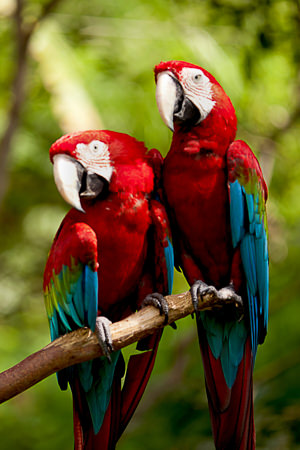
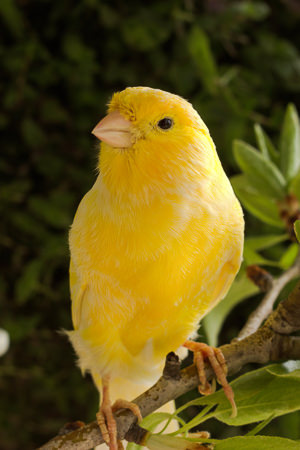

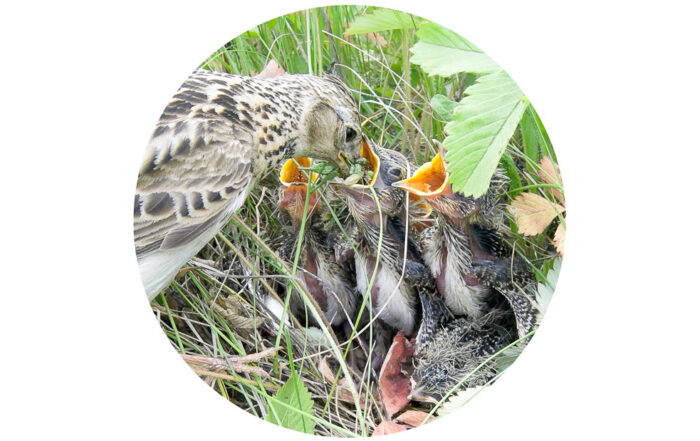
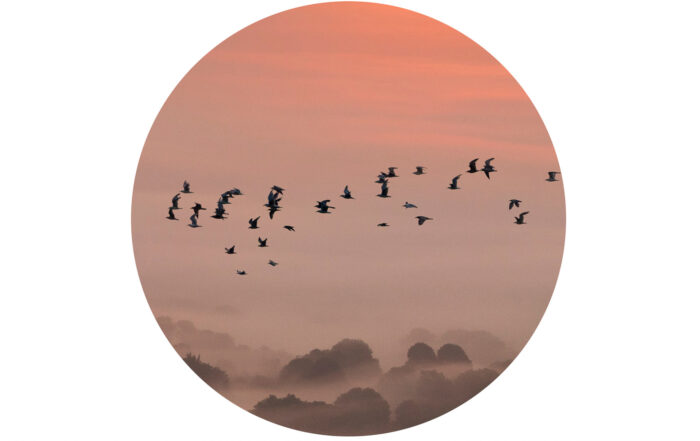
Leave A Comment